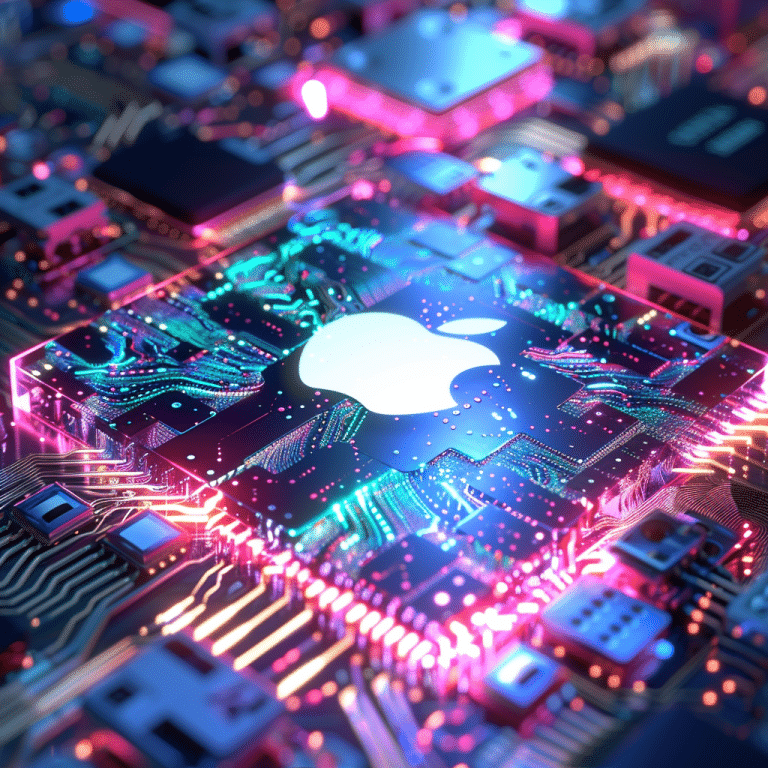Apple’s Bold Move into AI Integration with the M4 Chip
At a recent event, Apple unveiled a significant advancement in their hardware lineup—the M4 chip, showcased within their latest iPad model. This event marked a pivotal shift for Apple, as it was the first keynote where they explicitly addressed their initiatives in artificial intelligence (AI), deviating from their usual subtle mentions of AI capabilities in past presentations.

Unprecedented AI Capabilities
The newly introduced M4 chip is described as possessing the fastest neural engine seen in Apple’s hardware to date, capable of executing an astonishing 38 trillion operations per second. This not only surpasses the neural processing capabilities of any contemporary AI PC but also signals a monumental leap in processing power for Apple devices.
Future-Proofing with AI
Apple’s strategy with the M4 chip clearly aligns with a broader vision to future-proof their devices against rapidly evolving AI demands. The M4 chip’s architecture is specifically tailored to enhance applications that leverage AI, indicating that upcoming Apple devices will be more than capable of handling sophisticated AI tasks. This move is seen as Apple’s acknowledgment of the growing significance of AI in consumer technology, ensuring their products remain at the cutting edge.
The Significance for Apple and the Tech Industry
By integrating such powerful AI capabilities directly into their chips, Apple is not only enhancing the user experience but is also setting a new standard for what consumers can expect from personal devices. This strategic move could potentially reshape market dynamics, prompting competitors to accelerate their own AI hardware innovations.
Moreover, this development is particularly significant given Apple’s reputation for perfection and seamless integration. With the M4 chip, Apple promises to deliver AI functionalities that are not only powerful but are also integrated with the elegance and efficiency typical of their brand. This suggests that users can expect real-time AI processing capabilities with minimal latency and maximal efficiency, enhancing tasks from complex computational operations to everyday app interactions.
Implications for Developers and Consumers
For developers, the M4 chip opens up new avenues for creating more powerful and efficient applications that can leverage real-time AI processing. This could lead to innovations in app functionalities that were previously constrained by hardware limitations.
For consumers, the promise of an AI-enhanced user experience means smarter applications, more intuitive interfaces, and an overall increase in device utility. It could transform how users interact with their devices, making technology more adaptive and personalized.
My Apple Conclusion
Apple’s introduction of the M4 chip with its exceptional AI processing capabilities is not just an upgrade; it’s a clear declaration of the company’s commitment to leading in AI-driven technology. As Apple continues to integrate AI more deeply into its hardware, the potential for groundbreaking applications and devices is vast. The tech community and consumers alike are eager to see how Apple will continue to innovate and how its competitors will respond to this significant leap forward in AI hardware development.

Really excited to see how the new M4 chip changes things! If it’s as good as it sounds, our iPads are going to be even more useful. Great to see Apple pushing the boundaries with AI.